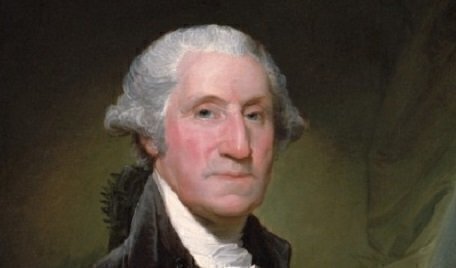This Thursday, Americans celebrate a Thanksgiving holiday that has its roots in colonial traditions. But was that holiday created by the first executive order issued by a President?
 The answer to that question is no one really knows for sure. President George Washington’s first presidential proclamation recognized a Thanksgiving holiday to be celebrated in late November 1789. Whether that act in itself was an executive order, in a modern sense, is up for debate.
The answer to that question is no one really knows for sure. President George Washington’s first presidential proclamation recognized a Thanksgiving holiday to be celebrated in late November 1789. Whether that act in itself was an executive order, in a modern sense, is up for debate.
The Constitution as written and ratified didn’t mention executive orders and proclamations by name, and there isn’t a specific provision or clause in the Constitution that directs the President to issue executive orders and proclamations. That didn’t stop President Washington from issuing two directives early in his first term.
The first came as a directive to his cabinet heads on June 8, 1789, asking for an accounting of each of their department’s activities. The second was a public proclamation in October 1789 asking for a national Thanksgiving holiday.
Washington believed he had the power to issue what we now consider executive orders based on the implied powers reserved to the President in Article II of the Constitution. In Section 1, the Constitution says, “The executive power shall be vested in a President of the United States.” And in Article 3, the Constitution says the President “shall take Care that the Laws be faithfully executed.”
In September 1789, five members of the First Congress had approached President Washington with the idea of a national proclamation to “recommend to the people of the United States a day of public thanksgiving and prayer to be observed by acknowledging, with grateful hearts, the many signal favors of Almighty God, especially by affording them an opportunity peaceably to establish a Constitution of government for their safety and happiness."
President Washington published his proclamation on October 3, 1789, and sent it to the states’ governors, asking for the leaders to make sure it was posted and published for all to see. “I must request the favor of you to have published and made known in your State in the way and manner that shall be most agreeable to yourself,” he wrote.
Records of Washington’s orders and proclamations published on the American Presidency Project website at the University of California, Santa Barbara, show that President Washington issued 15 proclamations during his two terms in office. And it lists Washington’s Thanksgiving Proclamation as the first presidential proclamation.
The Congressional Research Service said in a 2014 research paper on executive orders pointed to a 1943 Work Projects Administration project that listed Washington’s June 1789 cabinet directive as the first executive order. The project edited by Clifford L. Lord didn’t consider the Thanksgiving Proclamation as an executive order; instead, it listed a directive from President Washington to the governor of the Northwest Territory on October 6 about Indian relations as the second presidential executive order. (The WPA project’s editors excluded proclamations as “presidential letters” and not as true presidential directives.)
Of course, the whole history of executive orders is rather murky. In 1907, the State Department had all orders listed since the start of the Civil War cataloged and assigned numbers. But by Lord’s estimates in 1943, at least 1,500 unnumbered orders existed going back to Washington’s time.
In Washington’s time, our modern definitions of executive orders and proclamations didn’t exist. The Congressional Research Service cites a loose set of definitions discussed at House committee meeting in 1957 for modern guidance, with presidential proclamations confined to individuals and executive orders directed to government officials and agencies.
But Washington’s Thanksgiving Proclamation is addressed to individuals and governments, including a plea to “render our National Government a blessing to all the people by constantly being a Government of wise, just, and constitutional laws.”
Scott Bomboy is the editor in chief of the National Constitution Center.







